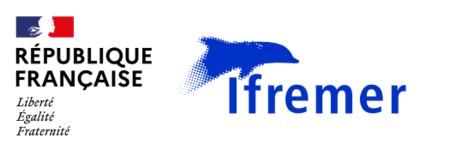Indian Ocean Delegation
The fields of expertise of the IFREMER Indian Ocean Delegation (Délégation Ifremer Océan Indien — DOI) involve fisheries, environment and marine aquaculture, including biodiversity. The DOI missions address in particular coastal environment monitoring, the study of target fish species, and the study and protection of marine species.
Organisation
The IFREMER Indian Ocean Delegation is based in Le Port on Reunion Island. Its activities are conducted in collaboration with local stakeholders (Regional Committee for Marine Fishing and Farming, Environment, Land Planning and Housing Directorate, Southern Seas Indian Ocean Directorate, Hydrô Réunion; French Institute of Research for Sustainable Development, Kélonia, Water Bureau, Mayotte and Glorieuses Natural Marine Parks, National Marine Reserve of La Reunion, University of La Reunion, University Centre of Mayotte, etc.) as well as international collaborations (South Africa, Australia, the Comoros, Madagascar, Mozambique, Oman and the Seychelles).
Research and missions
The missions of the DOI are
- To acquire data and knowledge on the marine environment and contribute to the development of observation and monitoring activities for marine resources and marine biology (exploited, non-exploited or threatened), the functioning of ecosystems and their main environmental characteristics (dynamics and connectivity of populations, habitat mapping, etc.);
- To manage and summarise data and knowledge to make them available for the development and provision of tools that ensure data standardisation, sharing and security (local administration and contribution to the maintenance of operational information systems and modelling tools, production of summaries, etc.);
- To formulate opinions, assessments, or guides for decision makers in regard to the sustainable management of marine species, their natural heritage and activities or uses that depend on them and contribute to the sustainable development of marine activities (fishing, aquaculture, marine renewable energy, etc.) via R&D projects.
To fulfil its missions, the DOI can draw on its own resources (a genetics laboratory and an otolith imaging laboratory) in addition to all the resources IFREMER has to offer. Beyond the external collaborations mentioned above, the DOI works with the support of all IFREMER teams and in particular:
- The Adaptation et Adaptabilités des Animaux et des Systèmes (MARBEC/RBE, Palavas) laboratory for aquaculture studies;
- The Fisheries Resources laboratory in Boulogne-sur-Mer (HMMN, RBE Department),
- The Information Systems for Integrated Management and Monitoring service (VIGIES),
- The Dynamiques des Écosystèmes Côtiers (ODE Department) unit, particularly for remote sensing,
- The Biogéochimie et Écotoxicologie (RBE Department, Nantes) unit.
